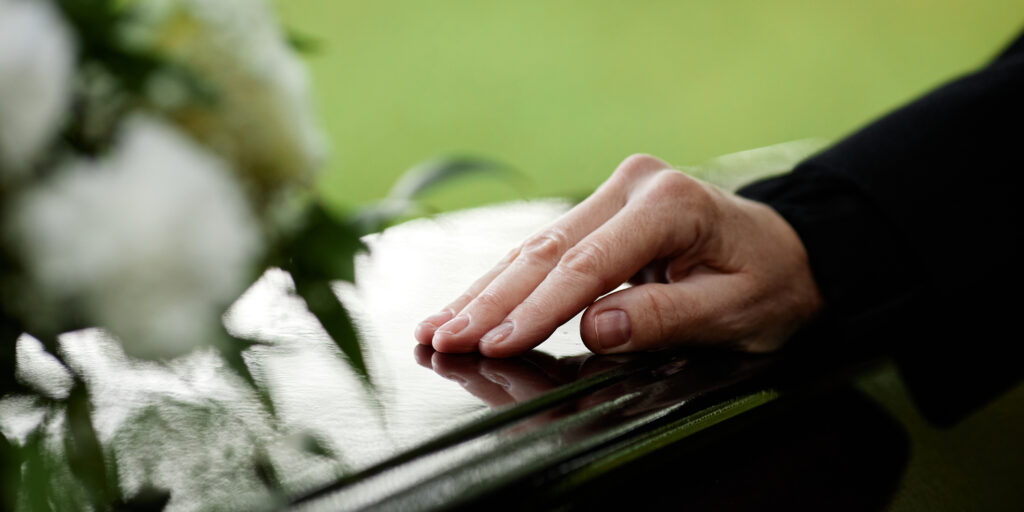For more than 30 years, a trusted Chicago wrongful death lawyer with Horwitz, Horwitz & Associates has helped the families of those who died due to the negligence or reckless behavior of others. We hold negligent parties accountable for their actions by filing a lawsuit in civil court.
While no level of financial compensation can make up for the loss of a loved one, it is a form of justice. Pursuing a wrongful death claim in Chicago can be helpful to the future lives of those left behind.

Horwitz, Horwitz & Associates is the most trusted wrongful death firm in Chicago
Since 1924, the Horwitz family has built a legacy of standing up for individuals against corporate wrongdoers and insurance companies that often exploit injured people. At Horwitz, Horwitz & Associates, we have always been dedicated to representing individuals, never corporate interests, and we remain steadfast in that commitment.
Our distinction goes beyond a legacy of record-setting verdicts and peer acclaim. It is rooted in the satisfaction of thousands of clients, many of whom came to us with cases deemed too difficult by other firms.
At Horwitz, Horwitz & Associates, we take on these challenging cases, skillfully prosecute them, and secure victories, recovering millions of dollars for clients denied representation elsewhere. With over $1 billion recovered in verdicts and settlements for families across Illinois, we are committed to justice. We offer free consultations to determine if your case has merit, ensuring you receive the representation you deserve.
Our Chicago wrongful death firm gets results
| Family Recovers After School Bus Hits Bicyclist ($2.1 Million)
Horwitz, Horwitz & Associates secured a $2.1 million settlement in a wrongful death lawsuit for the family of a 23-year-old bicyclist who was hit and killed by a school bus while riding to work. |
| Family Recovers After Child Drowns At Pool ($2 Million)
Attorneys of Horwitz, Horwitz & Associates recovered $2 million for a child who drowned at a pool. |
| Hotel Fails To Enter Room Of Guest Resulting In Death ($1.425 Million)
A family recovered $1.425 million in a highly disputed case against a major hotel chain. |
Horwitz, Horwitz & Associates has the skills to hold all liable parties accountable.
A wrongful death lawsuit is functionally similar to a personal injury claim. The difference is that the victim does not survive his or her injuries.
The claimant in a lawsuit must prove the negligent party caused the death in question through some action, either an act of negligence or an intentional tort such as an act of violence. Proving fault, or negligence, involves four elements.
1. Duty
The plaintiff’s Chicago wrongful death attorney must prove the defendant owed a duty of care to the deceased. This generally involves proving the defendant was in some way involved in the cause of death or in a position to cause death.
2. Breach of duty
Next, the plaintiff’s attorney must prove that the defendant breached this duty of care somehow. This could be by direct action, such as speeding through a red light. This could also be by inaction; another reasonable person in the same situation would have acted differently to prevent the death.
3. Damages
The plaintiff’s attorney must then prove that the defendant’s negligence resulted in measurable damages and observable injuries to the plaintiff and show the extent of those damages. The damages in these claims can apply to those sustained by both the deceased and his or her loved ones filing the claim.
4. Causation
Finally, the plaintiff’s attorney must prove causation. A plaintiff’s attorney must prove the defendant’s negligence was the direct cause of the plaintiff’s damages rather than some other cause. The plaintiff’s attorney may also prove that the death in question would not have occurred but for the defendant’s negligence.
We make sure the right parties file the right lawsuit
The Illinois Wrongful Death Act requires the personal representative of a deceased individual’s estate to file a lawsuit on behalf of the deceased.
Unless the deceased named a specific individual to act as his or her representative, Illinois law allows family members, such as the surviving spouse or adult child of a deceased individual, to file a wrongful death claim. A parent may also file a suit for the wrongful death of a child.
Suppose the deceased individual died before naming a personal representative for his or her estate. In that case, the court will likely select one of the previously mentioned close relatives to act as the personal representative for the claim.
Horwitz, Horwitz & Associates can help you understand the Wrongful Death Act
The Illinois Wrongful Death Act defines wrongful death as a death caused by a wrongful act or neglect.
A good way to tell if the situation is considered wrongful death is by determining if the deceased person would have been eligible to recover damages through a personal injury lawsuit if they had not died.
Our Chicago wrongful death lawyers will work to recover the wrongful death claim and the survival action
Many people mix up wrongful death cases and survival actions. A lawsuit allows the estate of a deceased individual to recover compensation for damages to the estate’s beneficiaries.
A survival action compensates claimants for damages the deceased would have likely received had he or she survived. This may include pain and suffering and lost earnings incurred between his or her final injury or illness and death.

Horwitz, Horwitz & Associates will recover maximum compensation on your family’s behalf
Compensation is based on many factors, including the person’s age, profession, income, and family circumstances. At Horwitz, Horwitz & Associates in Chicago, our dedicated wrongful death lawyers understand the profound impact of your loss and are here to help you pursue the compensation you deserve. We focus on securing comprehensive compensation that includes:
- Medical bills incurred before your loved one’s passing
- Funeral and burial expenses
- Loss of wages and financial support that the decedent would have provided
- Pain and suffering experienced by the family due to this heartbreaking loss
We recognize the emotional and financial toll this has taken on your family and are committed to supporting you every step of the way.
You owe us nothing unless we win your wrongful death case
At Horwitz, Horwitz & Associates, our law firm takes all cases on a contingency fee basis. This ensures no out-of-pocket costs for clients; they only pay legal fees when we win their cases.
A contingency fee is deducted from the final case settlement or trial award, and your Chicago wrongful death lawyer at Horwitz, Horwitz & Associates strives for transparency in all aspects of our billing practices.
Our Chicago wrongful death lawyer can make sure you file the claim on time
Illinois allows a one-year statute of limitations or time limit for filing wrongful death cases. This year begins on the date of the death in question, but the statute may also allow the claimant to pursue on the grounds of the underlying claim behind the claim.
For example, if a death results from a personal injury, the statute of limitations for personal injury claims is two years. The claimants in this situation would have up to two years to file a wrongful death claim.
We answer common questions about Chicago wrongful death claims
Are there limits on the amount of recovery I can receive from a wrongful death claim?
Illinois recently struck down the state’s damage caps for medical malpractice claims. Now, there are no caps or limits on the amount of recovery available from most civil claims in Illinois.
What happens if my loved one is killed in a criminal act?
In the event a person dies from criminal activity, such as an armed robbery, homicide, or domestic abuse, the victim’s family may pursue a civil suit for recovery. The offender will also face criminal prosecution from the state. Evidence in the criminal case may come into play during the civil trial.
Plaintiffs in this situation need to remember that even if a defendant avoids criminal conviction, the standard of proof is lower in a civil case, and recovery through a wrongful death case is still possible.
What are the most common causes of wrongful death?
Most suits are often the result of:
- Car accidents
- Motorcycle accidents
- Pedestrian accidents
- Bicycle accidents
- Drunk driving accidents
- Slip-and-fall accidents
- Faulty or defective products
- Workplace accidents
- Medical malpractice
- Nursing home neglect
We will work for you to help restore your family’s dignity and to help you seek justice for what occurred. Call a Chicago wrongful death lawyer who will hold the responsible parties accountable.
What if multiple parties are responsible for my loved one’s death?
Illinois upholds a comparative negligence law. This means multiple parties can potentially share liability for wrongful death or any other type of civil injury.
For example, if a negligent driver causes a car accident and then the victim receives negligent medical care and dies, his or her surviving loved ones potentially have grounds for legal action against both the negligent driver who caused the accident and the negligent medical professional who provided inadequate or irresponsible care.
Illinois also upholds that a plaintiff may incur liability if a case investigation reveals the plaintiff contributed to his or her damages in any way.
For example, if the deceased person in a wrongful death claim contributed in any way to the fatal event in question, the claimants may face a reduced settlement to reflect his or her degree of fault.
Work with our trusted and top-rated wrongful death lawyers in Chicago
Our law firm understands that you and your family have suffered tremendous pain, hardship, and negative financial impact. If you believe your family member has died due to the negligent actions of another person or entity, we can help.
Contact us online or at (800) 985-1819 to arrange a free case evaluation to discuss your case with a Chicago wrongful death lawyer. We can advise you of your rights and the legal issues surrounding these cases and give you a professional opinion about what to expect.


















